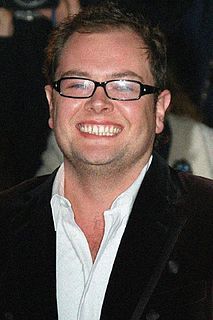A Quote by Theodore Melfi
I have a very strict philosophy that if you're not working out, you're getting fat.
Related Quotes
I would like to undermine the stereotype of "strict philosophy." J.L. Austin remarked that, when philosophy is done well, it's all over by the bottom of the first page. I take him to have meant that the real work comes in setting up the problem with which you are dealing, and thus getting your reader to take particular things for granted.
I studied philosophy in school, became disgruntled by the fact that it was a way to have a very interesting conversation with very few people about very few things in very narrow terms and yet still believed (and still believe today) that there was something that I was getting myself involved in when I said I wanted to study philosophy.
I intend Deaths in Venice to contribute both to literary criticism and to philosophy. But it's not "strict philosophy" in the sense of arguing for specific theses. As I remark, there's a style of philosophy - present in writers from Plato to Rawls - that invites readers to consider a certain class of phenomena in a new way. In the book, I associate this, in particular, with my good friend, the eminent philosopher of science, Nancy Cartwright, who practices it extremely skilfully.




































